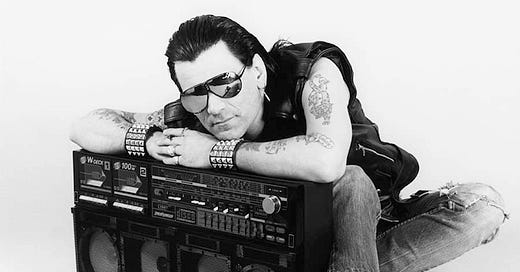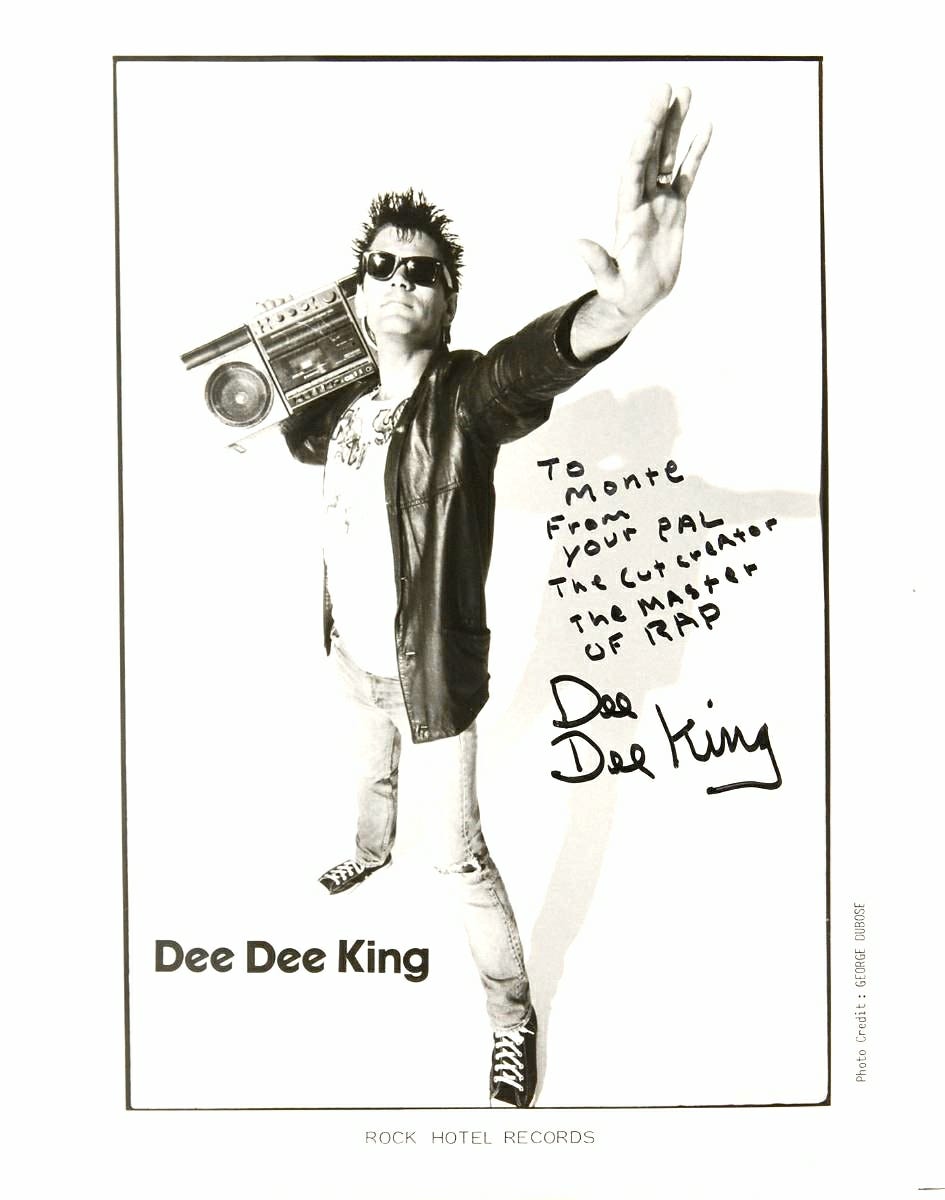There are no photos. There are no flyers. Even Google has no trace of a summer, 1990 gig at Sideshows by the Seashore in Coney Island, a rare solo acoustic performance by Dee Dee Ramone.
But I know it happened, because my band not only opened for Dee Dee, I chauffeured him and his teenage girlfriend to the show, and back to Manhattan. I was twenty-five years old. Dee Dee was thirty-nine and had recently quit the almighty Ramones, with whom he had changed the course of popular music. He was thirteen years away from a fatal heroin overdose.
“How’d you like to open for Dee Dee Ramone for $50?” the club owner asks.
How could I resist? The exposure!
“And would you mind giving Dee Dee a ride? Dee Dee doesn’t drive.”
I pick up Dee Dee and his tiny, beautiful goth girlfriend on East 9th. They share the same unnaturally black hair, their bodies all angles beneath snug black clothes. He holds a sad, battered guitar case. I call, “Hey! Dee Dee!” and he smiles a toothless smile, his face sunken.
They tumble into the back seat, and almost immediately, Dee Dee says to the girl:
“Listen, Cheryl: tonight is MY night. OK? If you have any problems with that, we can just let you out here. OK?”
She whispers OK.
On the drive to Brooklyn, Dee Dee enthuses about his new life, how he’s finally learned to write a check and can finally take care of himself. He makes sure to tell us he’d written all the Ramones’ best songs, which, in fact, is true.
“Except ‘Sedated,’” he says. “That’s Joey’s.” Then he says to Cheryl: “OK. I’m gonna take a little nap now.” And he lays his head on her shoulder and does just that as she stares into space.
Incredibly, the show is not well attended. Maybe 50 people. But Dee Dee doesn’t care. And he is riveting. He performs all his Ramones tunes, just him and that crappy guitar, his voice lispy due to the lack of teeth, but confident. “Rockaway Beach,” “53rd & Third,” “Blitzkrieg Bop.”
Then he introduces a new song. “This is about my dad,” he says. “It’s called ‘Better Way to Live.’” The verses tell of a rascal father, a ne’er-do-well in a convertible who terrifies and fascinates his son.
Dee Dee sings: “Daddy all the time we wasted / We didn’t know a better way to live / But deep in my heart, I knew you’d always be / An easy man to forgive.”
It’s lovely. But apparently, in the haze of drugs and mental illness that is Dee Dee’s life, no one will ever think to record it. It seems to exist now only in my memory.
On the drive back, Cheryl cradles Dee Dee in the backseat. I gush about how much I love the song. After a few moments, he shifts in the darkness and says, “Yeah. That’s a hit. I write the hits, y’know.”
Thanks to Martha Frankel and Woodstock Bookfest for giving me the opportunity to tell this story.











Share this post